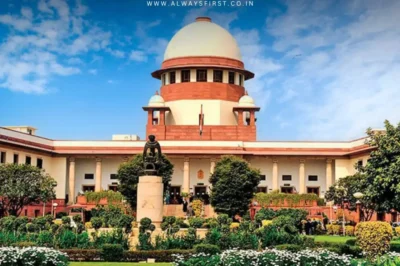Key Takeaways:
✔ SC Stays HC Order – The Supreme Court suspended Calcutta HC’s interim stay on Bengal’s OBC list, terming it legally flawed.
✔ Executive Authority Upheld – CJI BR Gavai cited the Indira Sawhney case, affirming states can classify OBCs without legislation.
✔ Contempt Proceedings Paused – The Bengal govt, represented by Kapil Sibal, had faced HC contempt over the OBC revision dispute.
Supreme Court Overrules Calcutta HC, Backs Bengal Govt on OBC List
In a decisive ruling, the Supreme Court on Monday stayed the Calcutta High Court’s interim order that had stalled West Bengal’s revised Other Backward Classes (OBC) list, delivering a major victory to the state government. A bench led by Chief Justice BR Gavai declared the HC’s intervention “prima facie erroneous”, questioning its legal foundation.
“How could the High Court have done that?” CJI Gavai remarked during the hearing, emphasizing that the identification of backward classes does not require legislative backing—a principle established by the 1992 Indira Sawhney verdict.
Legal Tug-of-War Over OBC Classification
The controversy began when the Calcutta HC, on June 17, froze the Bengal government’s OBC list revision following a writ petition challenging the state’s authority to modify reservations without enacting a law. Senior advocate Kapil Sibal, representing West Bengal, informed the SC that the HC had even initiated contempt proceedings against the state for proceeding with the OBC revision.
“The High Court ruled that backward class classification must be legislated… Now, we’re facing contempt,” Sibal argued. However, the SC bench countered, reaffirming that executive orders suffice for OBC categorization under constitutional provisions.
What’s Next?
The Supreme Court has issued a notice on Bengal’s plea against the HC order and scheduled further hearings. The ruling not only shields the state from legal repercussions but also reinforces the centrality of executive discretion in social justice policies.
For AlwaysFirst, this judicial standoff underscores the ongoing tensions between state and judicial authorities over reservation policies—a debate likely to intensify in coming months.








































Leave a Reply